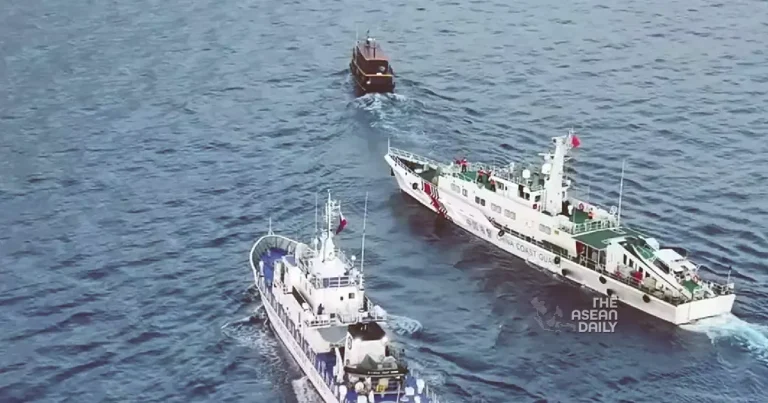11-3-2024 (MANILA) In a bold move to secure its economic interests and tap into the resource-rich South China Sea, the Philippines is counting on the support of its allies, including the United States, Japan, and Australia, according to the country’s envoy to Washington.
Ambassador Jose Manuel Romualdez, in an interview in Manila, revealed that as the Philippines prepares to explore the disputed waters for potential energy resources, it aims to leverage its deepening security ties with allies to ensure the safety and success of these expeditions.
“When the time comes that we are going to start exploring it, we’ll have the options to be able to see how we can secure the expedition,” Romualdez stated. “We’re working closely with our allies, not only the US but also Japan and Australia.”
The South China Sea, a strategic waterway claimed almost entirely by China, is believed to hold significant quantities of oil and gas, according to the US Energy Information Administration. The Philippines, which imports nearly all its fuel needs, has long sought to tap into these resources but has faced obstacles due to territorial disputes with China.
Romualdez outlined several potential courses of action the Philippines is considering, including inviting US companies to invest in exploration and development efforts and engaging in discussions with countries like Vietnam, which also have overlapping claims with China.
The ambassador emphasized that these plans are part of a broader “energy package” aimed at reducing the country’s high power costs, which are among the highest in the region, to attract more investors.
“It’s part of our energy package,” he said, adding that the exploration is likely to occur within President Ferdinand Marcos Jr’s term, which ends in 2028.
As the Philippines strengthens its security alliances amidst tensions with Beijing, it seeks to leverage these partnerships for economic gains. Romualdez underscored the importance of economic prosperity, stating, “While we have all these defence ties, the bottom line is economic prosperity. If we do not have economic security, we can have all these defence agreements and it would mean nothing to us.”
China, too, has expressed keen interest in exploiting the resource-rich waters of the South China Sea, with President Xi Jinping calling on the military to align its maritime strategy with economic development, potentially escalating the dispute with the Philippines.
In a wide-ranging interview ahead of a US trade and investment mission this week, Romualdez revealed that Marcos is leveraging his rising global influence to secure deals for the country. Over the past year, Marcos has deepened security ties with the US and other allies, including addressing the Australian parliament and being the keynote speaker at a regional security forum in May.
Marcos is scheduled to meet with US Secretary of Commerce Gina Raimondo on Monday before heading to Germany for meetings with Chancellor Olaf Scholz, alongside other Southeast Asian leaders.
“President Marcos is very, very keen on trying to catch these investment opportunities open to us now because we’re in the center,” Romualdez said, adding that even European countries are taking interest.
Raimondo’s delegation to Manila includes executives from major companies like Microsoft, United Airlines, Google, and energy firms, aiming to strengthen economic relations and encourage investment in an increasingly important ally.
While the Philippines’ strong relations with the US provide an advantage, the competition for investment among Southeast Asian nations remains intense. Marcos must prove that his government can provide a conducive business environment, including reducing red tape and lowering electricity costs, according to Romualdez.
High power costs remain a significant hurdle for investors, which further fuels the Philippines’ push to explore its own energy resources.
Romualdez expressed unwavering determination in the nation’s plans to explore resources within its exclusive economic zone, stating, “What is ours is ours, and we’re not going to stop. We’ll do it when we feel like it’s time for us to do it.”




